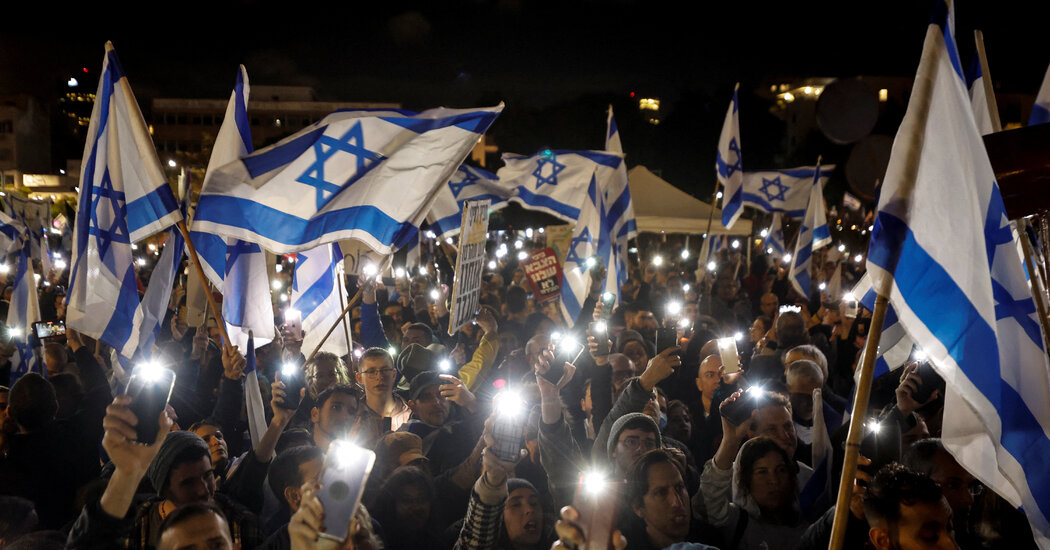In Israel, a far-right coalition faces mass protests
Those stories of change in the United States and South Africa have shifted my lens on the modern-day protest movements I often cover for this column. It is easy to look at public mobilization as a signal of a movement’s strength: how many people turn out to demonstrations, how often they protest and whether they continue in the face of state repression. But it’s just as important to look for evidence that the protests are connecting with a crucial political or economic constituency, and whether a movement is organized enough to use that leverage.
In Iran, for instance, anti-government protests have maintained momentum for months, drawing mass public support for change. Protesters have shown tremendous resilience in the face of state violence, including mass arrests, torture, and the killing of dozens of teenagers and children. But thus far, there is not much evidence that powerful constituencies are facing the kind of pressure that would oblige them to adopt the protesters’ agenda.
That doesn’t mean, of course, that Iran’s protest movement won’t be successful. But it is not yet clear how the protesters will connect their public mobilization to a lever of political power.
In Israel, tens of thousands of people took to the streets last weekend to protest against the right-wing government’s plan to limit the power of the judiciary — a move that judges, commentators and opposition lawmakers argue will undermine Israeli democracy. But the last election already showed that a far-right coalition can win without support from the center or left. The government is therefore dependent on the far right, which is now in a position to force its agenda.
“There is a coalition of people who have had this agenda for many years of restraining the courts, and also other forces in society that block the Israeli right from implementing its ideological program,” said Gideon Rahat, a senior fellow at the Israel Democracy Institute, an independent research center. Prime Minister Benjamin Netanyahu used to limit that far-right agenda to maintain a more centrist compromise, Rahat told me, but now it is more politically expedient for him to give them a freer rein.
The prospects for an Israeli-Palestinian peace agreement, viewed through this lens, are growing even bleaker. The Israeli economy does not depend heavily on Palestinian labor, and the militarized isolation of the occupied territories means that Israeli cities are relatively insulated from unrest there. The Iron Dome missile defense system and other military assets add a further layer of protection against attacks — and therefore from political pressure as well. The Palestinian leadership is divided, and has not been seen as a credible negotiating partner since 2006, when Hamas took over in Gaza, Rahat told me.
And the prospects for international pressure are limited, in part because of Israel’s unique position within domestic politics in the United States, where support for Israel is now a top priority of the American right.

Tinggalkan Balasan